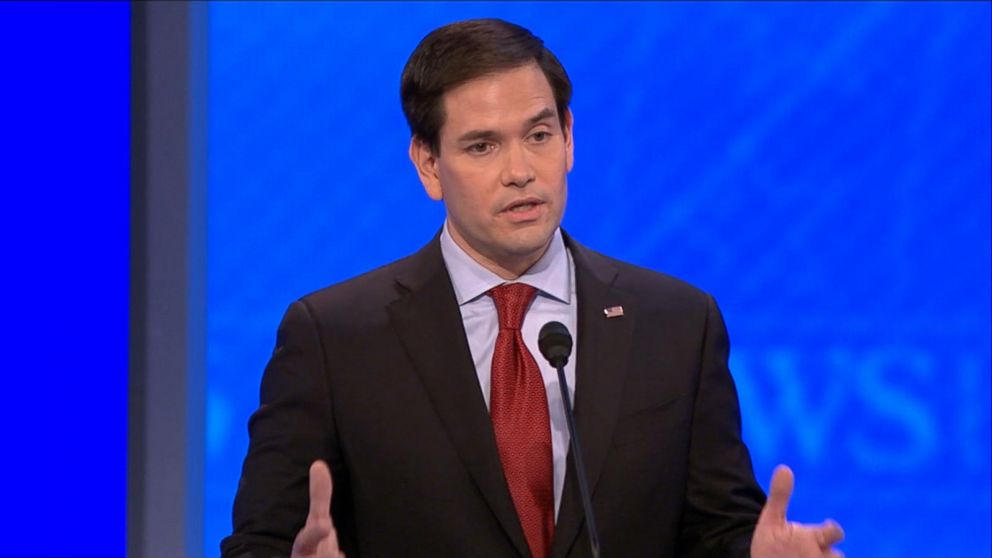The awards story of Emilia Pérez illuminates Hollywood’s fragile politics
Emilia Pérez and its awards race is a transparent case study of the way Hollywood's politics collide with the politics of audiences.


On January 23, Emilia Pérez entered film history. The Spanish-language, French musical crime film received 13 Oscar nominations, tied for second-most of all time, placing it alongside Gone With The Wind and Who’s Afraid Of Virginia Woolf?. Those watching along online had one collective response: What?
Emilia Pérez has since become embroiled in a dramatic Oscar campaign, involving public apologies and critical videos from the White House. It’s rare that any film hits the cultural zeitgeist so hard, but even more rare that the culture hits back with such ferocity.
Emilia Pérez is a case study, a transparent dissection of the way Hollywood's politics collide with the politics of audiences. So, how did we get here? And what’s to be made of this mess?
After premiering at Cannes last year, the film walked away with the Best Actress award, shared between leads Zoe Saldaña, Selena Gomez, Adriana Paz, and transgender actress Karla Sofia Gascón who plays the title role. That award bolstered the buzz of its attention-grabbing premise: A Mexican cartel leader (Gascón) enlists a lawyer (Saldaña) to assist with her transition, then starts a charity organization to help find the bodies of those kidnapped by cartels while also watching after her ex-wife (Gomez) and son by pretending to be the child’s aunt. Also, it’s a musical.
Indiewire called it “a debacle you won’t forget.” Vanity Fair said it “walks a fine line between daring and ridiculous.” But no other critic understood what the film would become like Vulture’s Bilge Ebiri, who titled his review “We’ll be yelling about Emilia Pérez for a long time to come.”
Emilia Pérez was bought by Netflix and secured a coveted homepage placement in mid-November (a wider release than most films in contention for awards ever get). But the scrutiny didn’t start in earnest until an absurd clip of the song “La Vaginoplastia,” exhibiting the film’s signature talk-singing about going “from penis to vagina,” spread on social media. The clip is easy to laugh at, which brought the arthouse film to the wider audience of people who enjoy laughing at films.
The wider reach incited controversy. Not many transgender critics get to go to Cannes—and, despite being an international film festival, neither do many Latino critics. Suddenly, trans and Latinx people—the groups actually featured in Emilia Pérez (Gascón is Spanish)—were able to watch the film. Most didn’t like what they saw.
Drew Gregory pointed out the numerous transgender tropes in the story, such as making a trans woman a murderer or having her abandon her family. Harron Walker wrote about the harmful depiction of Pérez, who—when angry—becomes violent and "reverts" to a lower voice. GLAAD even put together a compilation of critiques calling the film “profoundly retrograde” in its depiction of a trans woman.
Adjacently, there was the issue of Emilia Pérez’s depiction of Mexico and its people. Many criticized Gomez’s Spanish in the film, and noted that its subtitles were incorrect translations. Los Angeles Times columnist Gustavo Arellano wrote that “Audiard reduces Mexico City, one of the world’s great cities, to a bunch of interiors and taco stalls.”
Speaking to The A.V. Club, Arellano points to Emilia Pérez as being just the latest in a long tradition of Hollywood films reducing Mexicans to stereotypes. “Hollywood still can’t help but to simplify our stories into archetypes that American audiences can easily understand,” Arellano said. “There has never been subtlety when it comes to Hollywood and Mexicans.”
But Emilia Pérez discourse didn’t kick into high gear until the Golden Globes, where the film walked away with four high-profile wins. Suddenly it couldn’t be ignored that some moviegoers, or at least awards voters, actually like Emilia Pérez.
For those tapped into Hollywood circles, Emilia Pérez’s accolades were unsurprising. The film contains many elements that are catnip for award voters. The Oscars have always had a love of musicals even when the general public does not. The accessibility of the film on Netflix during awards eligibility season meant Emilia Pérez got a lot of new eyes on it when it mattered most. The Academy has also become increasingly friendly toward international films in recent years, starting with Parasite in 2020 and continuing through Best Picture nominations for films like Drive My Car, Anatomy Of A Fall, All Quiet On The Western Front, Triangle Of Sadness, and The Zone Of Interest.
Winning Oscars is also all about crafting narratives. Many Academy voters are very excited around the narrative of turning Zoe Saldaña into an Oscar winner. She has consistently put work into many high-profile franchises for years, and her appearance in such a bold film is the kind of performance that stands out to voters.
But Emilia Pérez is also the latest high-profile example of the Oscars’ issue with films about causes. This hang-up became most clear in recent times with Green Book, a reductive “racism bad” film that allows white people to pat themselves on the back. There was also Nomadland, a film that looks upon “normal people” with a wistfulness that can feel a bit leering and condescending from a Hollywood perspective. And there’s always Crash, one of the worst films about racism and discrimination ever made, which beat Brokeback Mountain for Best Picture in 2006.
Green Book’s Best Picture win was a dividing line in the history of the academy. In 2015 and 2016, all the acting nominees at the Oscars were white, sparking April Reign’s #OscarsSoWhite movement. The Academy responded to these concerns by promising to double the amount of women and underrepresented groups in its membership by 2020. The next year saw Parasite become the first non-English language Best Picture winner and the start of the international boom. Since then, the Academy has been very vocal about its commitment to diversity and improving its image, down to including a land acknowledgment in its museum brochure.
It can seem like Emilia Pérez’s glut of nominations is pure virtue signaling on the part of Academy voters. But a director of photography is not nominating Emilia Pérez for Best Cinematography to be seen as “woke.” Rather, Emilia Pérez speaks to a long-gestating issue of how the politics of Hollywood manifest at the Oscars.
The re-election of Donald Trump as President Of The United States sent a chill through Hollywood, whose denizens realized just how powerless they really are in the political arena. All the Taylor Swift endorsements in the world cannot stop a rising conservative political movement. In his L.A. Times article “How Hollywood Lost the Culture War,” Matt Brennan wrote about Hollywood that “[C]ommuning only with other true believers, lashed together by shared values and secret language as if at a church service, cannot be counted on to transform society in tangible ways.”
Confronted with the impotence of their echo chamber, Hollywood artists might feel powerful when platforming Emilia Pérez. Despite all its problems, the film is defiantly itself. It’s bold and flashy and represents much of what can be so fun with filmmaking: You can put hundreds of people together and make something that feels unlike anything else.
For Oscar voters, Emilia Pérez is especially unique. Most Oscar voters did not watch The People’s Joker, I Saw The TV Glow, or National Anthem in 2024. Films like this are how the old guard could actually learn about trans people. But with no frame of reference for what is insightful media about the trans experience, the problems with Emilia Pérez are harder to see.
Emilia Pérez also speaks to the existing biases in Oscar voters. “Americans have loved their cinematic Mexicans violent since the days of the greaser reels,” Arellano tells The A.V. Club. “I can only speculate that the reason Emilia Pérez is getting so much buzz is because its champions are buying the director’s claim that what he's doing is original and even risqué—it’s not. But the champions are too stupid to know otherwise.”
Oscar accolades are not indicative of what is the “best” film. However, they are a valuable metric for how the industry sees itself, and what it wants to uphold. For the 2024 Oscars, that meant championing blockbuster filmmaking and returning to the theaters to see original films, hence the many nominations and wins for Oppenheimer, Barbie, and Poor Things. In this regard, Emilia Pérez winning multiple Oscars would be completely fitting with where Hollywood is right now, as an institution straining to feel relevant and inspired by any means necessary.
But now, as an offshoot of that same driving force behind its nominations, the film’s chances have taken some severe blows. Aside from the controversy around the actual content of the film, the cast and crew of Emilia Pérez have continued to dig themselves deeper.
When asked why he did the film in Spanish, Audiard called Spanish the “language of modest countries, of developing countries, of the poor and migrants.” Then Gascón—the front-and-center star who became the first openly transgender person to be nominated for an Oscar—entered the conversation. At first came flippant comments in a Hollywood Reporter profile where she took shots at online detractors and film critics: “You must be super well-adjusted to criticize the work of 700 people from your couch.” She continued with, “Let me tell you: Being LGBT doesn’t make you less of an idiot.” In Vanity Fair she made her point even more clear, saying, “If you don’t like it, go and make your own movie.”
Then things got much worse. On January 30, journalist Sarah Hagi discovered a storm of vile and racist tweets from Gascón. They included calls to ban Islam, disparaging comments about George Floyd, and a multitude of other posts containing blatant bigotry. The discovery was a shock in an age where studio PR teams are known to root out any potential problems before they launch a high-profile awards campaign.
One comment referring to the 2021 Oscars ceremony as an “Afro-Korean festival” or a “Black Lives Matter demonstration” steeps her film’s awards season narrative in bitter irony. Travon Free, who won the Oscar for Two Distant Strangers, his short film about police brutality towards Black people, at that ceremony, wrote that “[I]t’s disappointing when that resentment is being voiced by someone who I imagine knows the pains of marginalization and what it’s like to be in and of a community regularly targeted for violence. As a Black, queer Oscar winner, to quote the great poet laureate Tyra Banks, ‘I was rooting for you….’”
Some were able to take the turn in Emilia Pérez’s fortune in stride. Inspired by Gascón’s comments that queer people who don’t like the film should make their own, a group of Mexican artists made a parody musical called Johanne Sacreblu about a French trans woman, rife with all the baguette and mime jokes one could dream of. The short film highlights the absurdity of Emilia Pérez’s French production while finding humor in taking Gascón and Audiard’s condescending remarks seriously.
But now the Academy finds itself in a strange position. Is it possible, with all the varied motivations behind Oscar nominations, to champion a film and not those who made it? The Hollywood Reporter’s Executive Awards Editor Scott Feinberg wrote that some Oscar voters have told him privately they won’t vote for the film in any category because its reputation has become so toxic.
The Oscars are no stranger to awarding controversial people. In 2003, Roman Polanski received the Oscar for Best Director for The Pianist while living in exile from the U.S. to avoid going to jail after being charged with the 1977 rape of a minor (the Academy did not expel Polanski from its membership until 2018). In the midst of the #MeToo movement in 2017, Casey Affleck was awarded the award for Best Actor for Manchester By The Sea while the press reported that he had settled a sexual harassment lawsuit from two women in 2010. In an added insult, Brie Larson, an outspoken survivor of sexual assault, had to present him with the award.
The justification from Academy members has always been that the Oscars are about the art itself. But if Emilia Pérez is the line in the sand, then obviously that has never been true. Voting for Emilia Pérez in spite of its problems or rejecting the film for its controversies are two sides of the existing status quo: The Academy has politics and the awarding of Oscars is always making a political statement. Hollywood has always treated politics as a momentary statement and not an ongoing driving force that is present in all decisions and art being made.
We should not take any wins or losses by Emilia Pérez at the Oscars as reflective of its quality as a film. Instead, they will be entered into the cultural record. Hollywood was ready to accept Emilia Pérez despite people from the communities it claims to tell a story about voicing their objections. It wasn’t until the racist and hateful remarks became undeniable that people actually stood back and questioned what it was they decided to rally behind.
No one who works and creates in Hollywood can believe a film to be an immaculate conception. It is an industry—a glitzy and imaginative industry, but an industry nonetheless. It’s a network of companies and PR machines and individuals who very well may be racist and transphobic. They will ignore the complaints of underrepresented groups until the concerns pose a threat to institutional power, reputation, or profit. What Emilia Pérez and its ensuing controversies have done is expose the raw mechanisms that turn an idea into a film, a film into a symbol, and a symbol into an embarrassment.





































/https://tf-cmsv2-smithsonianmag-media.s3.amazonaws.com/filer_public/b9/66/b966cb9e-8fe2-4d1c-bd7a-ba59740291ae/smithmag-podcast-s03-ep02-auroras-article.jpg?#)








































